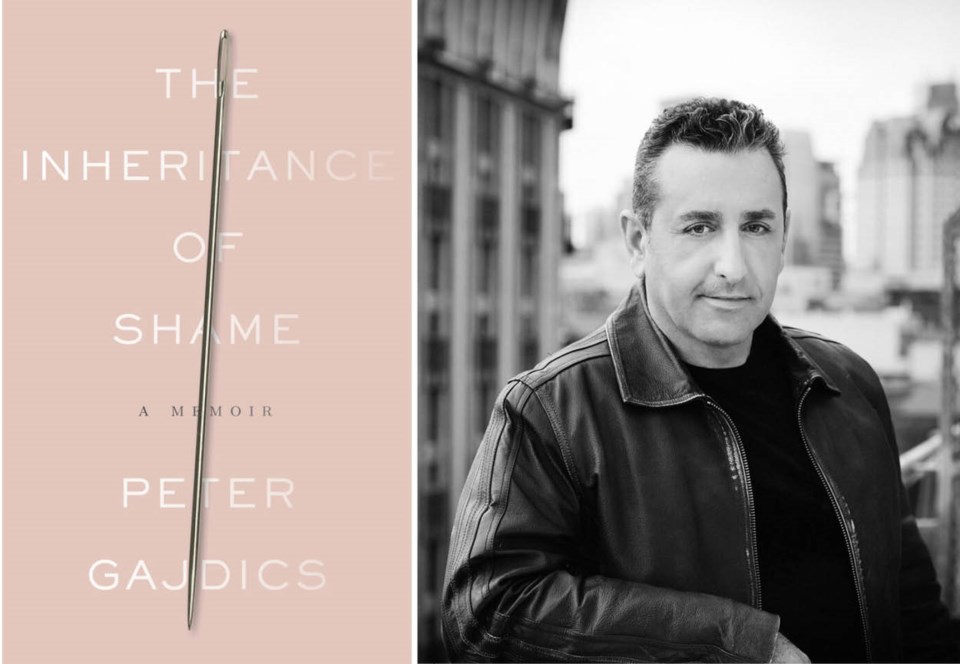Therapies to “cure” LGBTQ+ people could be banned in Vancouver — in 2018.
The city’s LGBTQ2+ advisory committee has asked the city to not grant business licences to anyone practising conversion therapies.
Jen Donovan, committee co-chair, says the move to ban conversion therapy (which is also called “reparative therapy”) is based on research that shows these kinds of therapies are harmful.
“The rationale really falls under just the amount of research, as well as the individuals that we've spoken to, around the harm — the lasting harms caused by that particular practice.”
Conversion therapy, according to the committee’s motion, is a range of “pseudoscientific practices…used with intentions of converting an individual’s sexuality or gender identity into alignment with the heterosexual and cisgender majority.”
As an umbrella term, it includes practices such as religious rites, behavioural modification therapy, medication use, and electroshock therapy or lobotomy.
A cursory search for Vancouver care providers who offer conversion or reparative therapies yielded few results. However, the Courier did find a religious organization, Journey Canada, which states it is against conversion therapy. However, it offers “discipleship” courses for people who want to heal “unwanted self-identified same-sex attraction.”
Journey Canada did not respond to the Courier’s request for an interview before publication.
Donovan says there aren’t many direct references to conversion therapy in publicly available marketing or outreach materials, but it is still something that happens behind closed doors.
“We had a number of community members come forward and bring this topic to the attention of the advisory committee,” she says.
Although Donovan could not provide numbers or an estimate of how many people in Vancouver have been affected by these practices, she said she has heard from individuals who have been harmed by conversion therapy within a non-religious counselling situation in Vancouver over the past five years.
The motion, which passed unanimously on Nov. 23 at a committee meeting, recommends that city council make amendments to Licence By-law 4450, to “prohibit the provision of ‘conversion therapy’ services” by licensed businesses, thus protecting what it sets out as “vulnerable populations,” and includes youth as well as sexual and gender minorities.
The 88-page bylaw that currently regulates business operations in the City of Vancouver, covers restaurants, adult entertainment stores, arcades and shooting galleries, bowling alleys, parking lots, movie theatres and more. It does not cover bylaws for religious organizations or places of worship, thus the committee’s proposal as it is isn’t likely to prevent religious organizations from providing conversion therapy.
In the motion, the advisory committee refers to a list of professional organizations that have come out against the practice of conversion therapies, including the Canadian Psychological Association and the Canadian Association of Social Workers (CASW), and who cite research findings in their rationale.
Reached by phone in Ottawa, Sally Guy, director of policy and strategy for CASW, says social workers are against conversion and reparative therapies both on principle and on evidence.
“Our opposition to it really comes from our code of ethics and our principles as a profession which are, of course, self-determination, not doing any harm, and upholding the value and dignity of all people and their identities,” she says.
Conversion therapy is problematic, she says, because it presupposes that being gay, queer or trans is a problem, and that people should want to change. Furthermore, she says there’s no evidence that it’s effective.
“We're for evidence-based therapies that actually help people. There's no scientific research that actually supports the efficacy of conversion therapy... In fact there is scientific evidence that it can produce negative outcomes — anxiety, depression, negative self image, you know, feelings of personal inadequacy and even sexual dysfunction down the way, right? And then they have to end up getting therapy to counteract these effects later in life."

This has been the reality for Vancouver resident Peter Gajdics. Author of The Inheritance of Shame, a memoir that details his experience of conversion therapy, Gajdics says he’s pleased that professional organizations have taken a stand against conversion therapy and thinks governments need to get involved too.
“This [stance] is definitely fantastic. It's a step in the right direction, and it does make a difference. And I think more work needs to be done. Because obviously organizations still exist, people still exist...who still hold these belief systems, so despite all of this unanimous support denouncing it, it's important to, I think, create these laws to ban it."
Gajdics would not comment directly on the LBGTQ2+ Advisory Committee’s motion, but says the committee consulted with him on it.
Today Gajdics lives as an openly gay man, but between 1989 and 1995 he was on the receiving end of conversion therapy from a licensed psychologist in Victoria. The “healing” that Gajdics was told he needed to “return to his innate heterosexuality” caused lasting harm.
After six years of conversion therapy, which included psychiatric medications, primal scream therapy and aversion therapy, Gajdics said he was traumatized.
“I was in shock, in an acute state of depersonalization…that lasted for many years,” he says. “I’ve taken great effort to heal myself.”
Advisory committee co-chair, Donovan, says the committee wants to highlight that the provision of conversion therapies is a local issue and concedes that it cannot always be easily identified, and there is a symbolic nature to this request.
“Part of putting this motion forward is to have the city even just take a stance on it, with the understanding that we're not going to be able to identify all things happening in all ways, so maybe there's space for some of those more explicit situations to be impacted and acknowledged.”
Donovan also noted that there are processes in place within professional organizations through which individuals can file complaints should they be subjected to conversion therapy.
“There are due processes for reporting in those circumstances as well, so there are some accountability measures in place for some of those more professional services.”
Vancouver city councillor Hector Bremner says that he would support the motion to ban conversion therapies and, upon reading the motion, says he was surprised to learn that the city didn’t already have something similar in place.
“[Conversion therapy] flies in the face of being an open and inclusive city,” Bremner says.
Exactly when the motion will be presented to council is not yet known. Bremner says the motion to amend the business licence bylaw would need to be prepared by city staff and reviewed by the city’s legal team before it could be presented to council for discussion and a vote.



